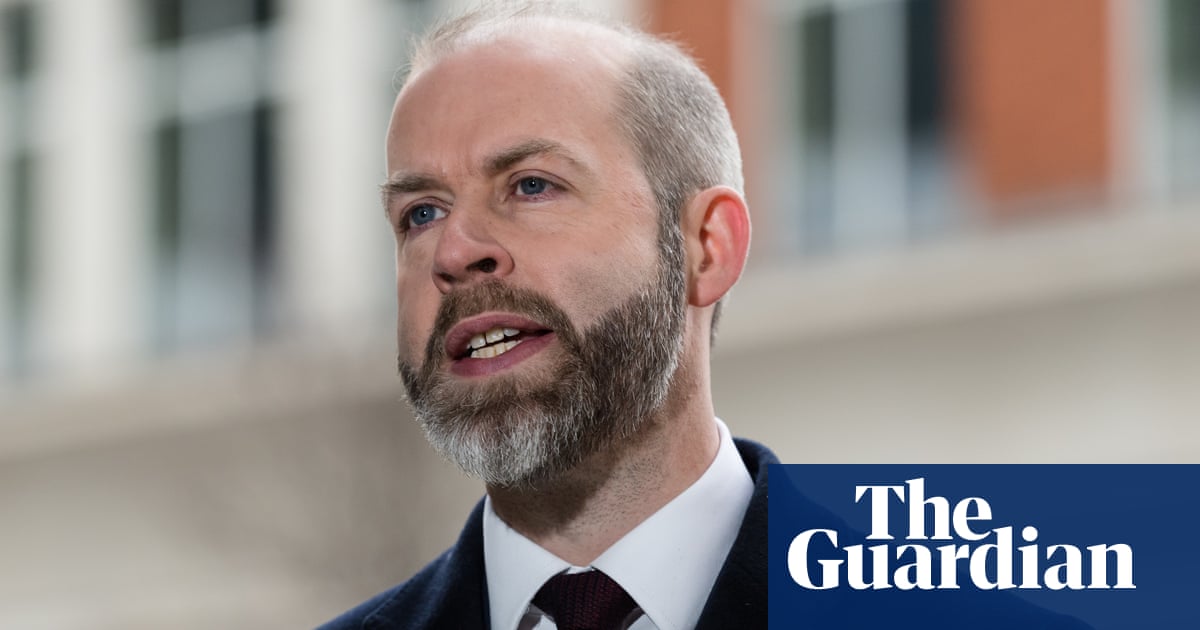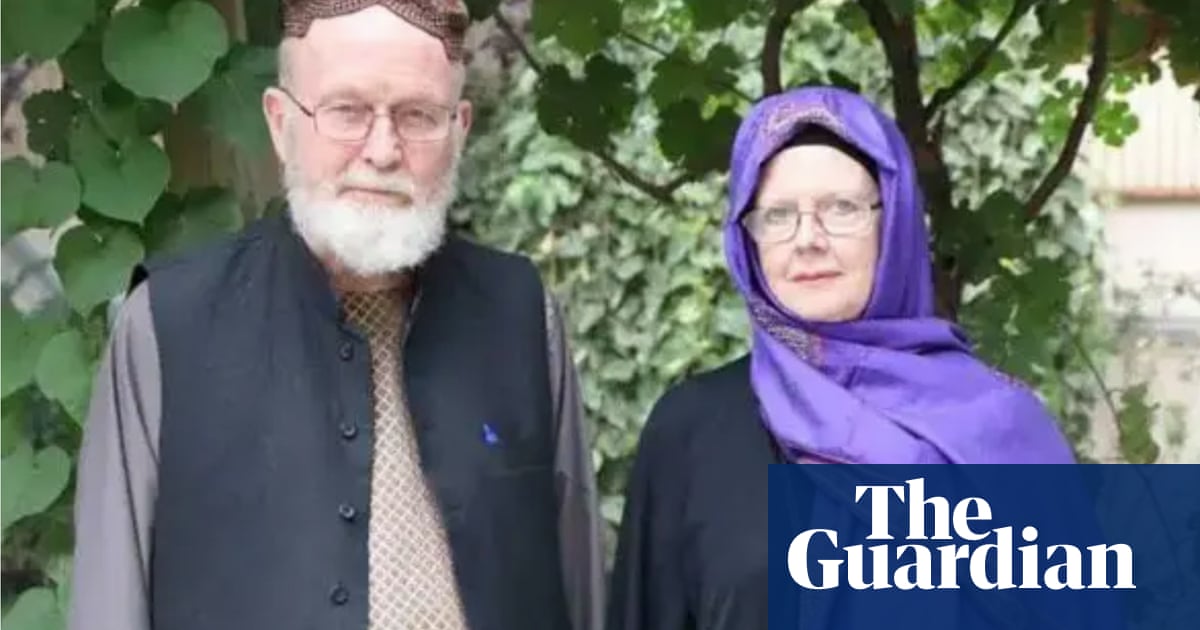Badenoch says she's against bill, citing teenager gender treatment as example of why NHS safeguards too weak
Kemi Badenoch, the Conservative leader, has confirmed that she will vote against the bill. In interviews in recent weeks she has expressed strong reservations about the bill, but in an article for the Times she explains why she is definitely voting against.
She cites the experience of teenagers given medical treatment to change gender as one of the reasons why she does not think the NHS should be allowed to supervise assisted dying.
I fundamentally believe that giving people a level of control over how they die can be a sacred thing in and of itself, is the right thing to do and something we must get right. Yet, I find myself unable to support this bill as it stands today. That is because of experience of the state’s ability to deal with this sort of complexity.
During my time as a government minister, it became clear to me that our healthcare system is not able to cope with complex issues requiring serious safeguarding. I learnt this when clinicians, parents, whistleblowers and children came to me raising serious concerns of safeguarding failures in our gender identity development service.
None of the safeguards purportedly in place did anything to prevent young, often gay or autistic, children from receiving irreversible and damaging treatments. I saw a culture in which patients and parents felt unable to challenge medical professionals, and medical professionals were fearful of questioning patients.
And she says she took the final decision to vote against the bill when Keir Starmer seemed to rule out allowing extra time for its report stage in the Commons.
The moment I knew I could not personally support the bill was at prime minister’s questions, when Sir Alec Shelbrooke asked the prime minister whether he would allow MPs two days of debate to examine the details of the bill and any amendments.
The prime minister swiftly dismissed him, saying five hours was “sufficient time”. I knew that this same bureaucratic indifference to the sincere concerns raised by MPs would be reflected in the judicial and healthcare systems responsible for carrying out assisted dying for the most vulnerable in our society.
Key events 7m ago No 10 hints Louise Haigh's resignation linked to breach of ministerial code 1h ago David Davis backs bill, but says government should allocate four days for its report stage debate 2h ago Heidi Alexander becomes transport secretary 2h ago Badenoch says she's against bill, citing teenager gender treatment as example of why NHS safeguards too weak 2h ago Death, for many, is 'misery, torture and degredation', not something noble, says Kit Malthouse, backing bill 3h ago Diane Abbott says she worries about people feeling they have to die because they're burden, 3h ago Kruger urges MPs not to back 'state suicide service' and 'worse world, with different idea of human value' 3h ago Danny Kruger urges MPs to vote down bill if they have reservations, as he gives opening speech from its opponents 3h ago Leadbeater rejects claims bill will be 'slippery slope', leading to scope of assisted dying being expanded 3h ago Leadbeater says she is open to toughening wording of bill to protect people with learning disabilities 4h ago Kim Leadbeater opens debate on her assisted dying bill 4h ago Speaker says MPs will not get vote on amendment that would have blocked bill to allow full policy review instead 4h ago How the debate, and voting, will take place 4h ago What is the real view on the assisted dying bill in Downing Street? 4h ago MPs to start debating assisted dying bill at 9.30am 5h ago Haigh says her conviction based on 'genuine mistake', and claims court accepted this 5h ago Tories say Starmer's decision to put Haigh in cabinet when he knew of her conviction 'obvious failure of judgment' 6h ago Starmer tells Haigh she has 'huge contribution to make in future' as he accepts her resignation 6h ago Louise Haigh resigns as UK transport secretary after admitting phone offence Show key events only Please turn on JavaScript to use this feature

Aamna Mohdin
The head of the race equality thinktank has warned of ‘devastating consequences’ if assisted dying bill is allowed to pass.
Jabeer Butt, chief executive of the Race Equality Foundation, pointed to the Liverpool Care Pathway, which was abolished a decade ago, where a government review heard that hospital staff wrongly interpreted its guidance for care of the dying, leading to stories of patients who were drugged and deprived of fluids in their last weeks of life.
Butt said:
The assisted dying bill represents a dangerous slippery slope. For decades, the NHS has struggled to protect life adequately. Framing assisted dying as a ‘better solution’ exposes a health system failing to provide the care and support people need for a reasonable quality of life.
My own experience with the Liverpool Care Pathway showed the devastating consequences when appropriate care is denied—loved ones were lost needlessly.
Instead of embracing this approach again, which has proven flawed in the past, we must focus on fixing the system. Where are the safeguards? Even clinicians who initially supported these measures often later express doubts. We cannot afford to repeat mistakes that cost lives.
No 10 hints Louise Haigh's resignation linked to breach of ministerial code

Rowena Mason
Downing Street are refusing to be clear about the circumstances around Louise Haigh’s resignation but at the lobby briefing this morning No 10 appeared to be hinting that she might have broken the seven principles of public life or the ministerial code.
The prime minister’s spokesperson repeatedly told reporters this morning:
Following further information emerging, the prime minister has accepted Louise Haigh’s resignation.
When asked what Starmer knew about Haigh’s spent conviction, what the further information was that emerged, and why he appointed her to cabinet, the spokesman gave the same scripted line over and over again.
Asked about what she had declared to the government, the spokesman said:
[There are] clear rules around declarations and that on appointment to office ministers must provide their permanent secretary with a full declaration in writing of private interests which might be thought to give rise to a conflict actual or perceived ...
The permanent secretary will review the minister’s declarations in light of their responsibilities and in discussion with the minister advise on actions needed to manage any interests. The interests must be shared with the independent adviser and this must occur within 14 days ...
Ministers must record in writing what action has been taken as a result of advice received from the permanent secretary and the independent adviser and provide the permanent secretary and independent adviser with a copy.
Many MPs have been using social media to say how they will vote in the debate today. Here are some of their messages posted this morning.
Shaun Davies, Labour MP for Telford, is voting for.
Today, 29 Nov, the Assisted Dying Bill has its 2nd reading in Parliament. I’ve carefully considered your views & intend to vote in favour of it proceeding. You can hear more in my video. Thank you to everyone who has shared their views and experiences with me on this matter. pic.twitter.com/zE6595LZ4u
— Shaun Davies MP (@ShaunDaviesMP) November 29, 2024Saqib Bhatti, Conservative MP for Meriden and Solihull East, is against.
After much consideration, I have concluded that I cannot support the Private Members Bill on Assisted Dying today.
Thank you to all, on both sides of this issue, who contacted me and the constructive and considerate way they have done so.
My statement is below 👇 pic.twitter.com/rTzcxn3h1W
Tonia Antoniazzi, Labour MP for Gower, who spoke in the debate earlier, is for
Jeremy Corbyn, the former Labour leader, who is now an independent MP, says he cannot support the bill.
Charlie Maynard, Lib Dem MP for Witney, is for (at least for now).
Many constituents have contacted me regarding the Terminally Ill Adults (End of Life) Bill (Assisted Dying Bill).
Both sides of the debate have made their cases passionately, in the national press and media throughout the country in all our communities. Similarly, I have… pic.twitter.com/v8EoabUYy7
Lee Anderson, the Reform UK MP for Ashfield, says his constituents are in favour (but he does not say here how he will vote).
Kirsteen Sullivan, Labour MP for Bathgate and Linlithgow, says she cannot back the bill.
Terminally Ill Adults (End of Life) Bill
After careful consideration & hearing from many constituents & experts, I have decided that I cannot support the Bill. I am sympathetic to the principle of assisted dying but must vote on the Bill as it stands.
My full statement below: pic.twitter.com/nTTRauws2e
Callum Anderson, the Labour MP for Buckingham and Bletchley, says he is in favour.
ICYMI - the below sets out my reasoning for why I am voting in favour of today's Assisted Dying Bill.
I know that this has weighed a lot on all of our minds as MPs, and I'm proud of the considered and thoughtful debates and conversations we have had so far. https://t.co/YPuX2SGYxL
Ruth Jones, Labour MP for Newport West, is against.
Tulip Siddiq, a Treasury minister, is for.
I take my responsibilities as an MP very seriously and, after careful consideration, I have decided to vote for the Bill on assisted dying today.
I believe it has the necessary safeguards to give terminally ill people the right to end their lives safely and on their own terms.
Nigel Huddleston, the Conservative co-chair, is against.
I would like to thank the many constituents who have reached out to me to express their views on assisted dying.
I have heard many heart wrenching personal stories and there are valid and compelling arguments on both sides of the debate.
But I cannot support this bill in full… pic.twitter.com/Ho2Qj9cjpO
Rachel Taylor, the Labour MP for North Warwickshire and Bedworth, is for.
David Reed, Conservative MP for Exmouth and Exeter East, is against.
Polly Billington, Labour MP for East Thanet, is against.
Nia Griffith, a Welsh Office minister, is against.
Thank you to everyone who has been in touch about the assisted dying vote taking place in Parliament today.
After careful consideration, I will be voting against the Terminally Ill Adults (End of Life) Bill. pic.twitter.com/49oNCOmpnz
Zubir Ahmed, Labour MP for Glasgow South West, is against.
Today MPs are being asked to vote on the Assisted Dying Private Members Bill.
After deep consideration, investigation and reflection, I intend to vote against it.
Please see the letter below outlining my reasons. pic.twitter.com/WfuB9TmYI1
Steff Aquarone, Lib Dem MP for North Norfolk, is in favour.
Carla Lockhart (DUP) says the safeguards against coercion in the bill are not adequate. The bill will change the way society values life. And it will put vulnerable people at risk. That is why she and her DUP colleagues will be voting against the bill.
Anna Dixon (Lab), another MP who signed the reasoned amendment saying the bill should not get a second reading to allow time for a full policy review, said she did not believe the procedure for private member’s bill was adequate for an issue of this complexity. In line with the precautionary principle, the bill should be blocked until there has been a proper public consultation, she says.
David Davis backs bill, but says government should allocate four days for its report stage debate
David Davis, the former Conservative cabinet minister, says he has changed his mind on this bill. He will vote for it today, he says. But this is only second reading, he says. If he is not happy with the bill, he could vote against at third reading, he says.
If the bill looks as if it will create a Belgian version of assisted dying, or a Canadian version, he would vote against, he says. But if the bill follows the Australian model, he will vote in favour.
But he does urge the government to allow more time for debate. He says the report stage, where all MPs (not just the MPs serving on the public bill committee) get the chance to vote on amendments, should last for four days. (Under the normal procedure, it would just get a few hours on a Friday.) He says this bill is more important to constituents than most of the bills in the Labour manifesto.
Marie Tidball (Lab) says today’s decision is the hardest she has had to make during a career in disability law and policy. She says she did not expect to be voting for the bill, but she will be doing so. She says she thinks it is right that people should have the option of assisted dying, but she says she would like to see stronger safeguards introduced as the bill goes through parliament.
UPDATE: Tidball said:
When I was six years old I had major surgery on my hips. I was in body plaster from my chest to my ankles, in so much pain and requiring so much morphine that my skin began to itch. I remember vividly laying in a hospital bed in Sheffield Children’s Hospital and saying to my parents ‘I want to die, please let me die’.
I needed to escape from that body that I was inhabiting. That moment has come back to me all these years later. That moment made it clear to me that if the bill was about intolerable suffering I would not be voting for it.
Tidball said she had since lived a “good life”, but added:
That moment also gave my a glimpse of how I would want to live my death, just as I have lived my life. Empowered by choices available to me. Living that death with dignity and respect and having the comfort of knowing that I might have control over that very difficult time.
Back in the Commons, Tim Farron, the former Lib Dem leader, says is he opposed to the bill. It will create a space for coercion, he says.
He recalls what happened when his mother was told she was terminally ill. A doctor said terminally ill people often suffer from depression. That is why they would be vulnerable to coercion, he says.
He says the government’s own suicide prevention adviser is against this bill.
And he says he is opposing this bill as a liberal. He is a liberal, not a libertarian, he says. He says people should not have a freedom if it encroaches on someone else’s freedom, and giving people the right to assisted dying would stop people from being free from coercion to die, he says.
According to Jessica Elgot’s assisted dying backgrounder yesterday, Heidi Alexander was being lined up as the government minister appointed to sit on the committee dealing with the next stage of the assisted dying bill, if it passes this afternoon. That is because, until yesterday, she was a justice minister. If the bill passes second reading, another minister will have to take up this responsibility.
Nusrat Ghani, the deputy speaker, asks MPs to stick to a five-minute time limit in subsequent speeches.
Back in the Commons Peter Prinsley (Lab) is speaking. Prinsley is a doctor, and he says he is in favour of the bill. He says better palliative care and assisted dying can go together.
Heidi Alexander becomes transport secretary
Heidi Alexander has been appointed transport secretary, replacing Louise Haigh, Downing Street has announced. Alexander had been a justice minister.
She first became a Labour MP in 2010, but left parliamment in 2018 to work for Sadiq Khan as deputy London mayor for transport. She became an MP again at the 2024 election.

Edward Leigh (Con), father of the house, goes next. He co-wrote an article with Diane Abbott opposing the bill
He says people support this measure because they are terrified of dying in pain. But there is no need for that, he says. He claims there is no limit to how much morphine a patient can take. But he says some doctors will not give patients morphine beyond a certain amount. There should be a royal commission to clear this up, he says.
Meg Hillier (Lab) says she agrees with the arguments made by Diane Abbott. (See 10.53am.) She recalls her daughter being seriously ill with acute pancreatitis as a teenager, and says for some days she did not know if her daughter would live or die. During that time she saw what good pain relief could achieve.
She says palliative care needs to be much better, and that she has been campaigning on this for years. She urges MPs to oppose the bill, saying it would put vulnerable people at risk.
Ben Spencer (Con), one of the cross-party group of MPs who tabled an amendment opposing the bill to allow time for a full debate, confirmed that he would vote against the legislation. He said he was particularly concerned about the risk of people being coerced into assisted dying.
Badenoch says she's against bill, citing teenager gender treatment as example of why NHS safeguards too weak
Kemi Badenoch, the Conservative leader, has confirmed that she will vote against the bill. In interviews in recent weeks she has expressed strong reservations about the bill, but in an article for the Times she explains why she is definitely voting against.
She cites the experience of teenagers given medical treatment to change gender as one of the reasons why she does not think the NHS should be allowed to supervise assisted dying.
I fundamentally believe that giving people a level of control over how they die can be a sacred thing in and of itself, is the right thing to do and something we must get right. Yet, I find myself unable to support this bill as it stands today. That is because of experience of the state’s ability to deal with this sort of complexity.
During my time as a government minister, it became clear to me that our healthcare system is not able to cope with complex issues requiring serious safeguarding. I learnt this when clinicians, parents, whistleblowers and children came to me raising serious concerns of safeguarding failures in our gender identity development service.
None of the safeguards purportedly in place did anything to prevent young, often gay or autistic, children from receiving irreversible and damaging treatments. I saw a culture in which patients and parents felt unable to challenge medical professionals, and medical professionals were fearful of questioning patients.
And she says she took the final decision to vote against the bill when Keir Starmer seemed to rule out allowing extra time for its report stage in the Commons.
The moment I knew I could not personally support the bill was at prime minister’s questions, when Sir Alec Shelbrooke asked the prime minister whether he would allow MPs two days of debate to examine the details of the bill and any amendments.
The prime minister swiftly dismissed him, saying five hours was “sufficient time”. I knew that this same bureaucratic indifference to the sincere concerns raised by MPs would be reflected in the judicial and healthcare systems responsible for carrying out assisted dying for the most vulnerable in our society.
Layla Moran (Lib Dem), chair of the Commons health committee, says she will be voting for the bill because “I want this conversation to continue”.
To those saying the bill crosses the Rubicon (like Danny Kruger – see 10.44am), she says she respects their views.
And to those MPs with concerns about the bill, she says they should vote for it today so amendments to the bill can be debated later. MPs can vote for the bill today, but vote against it at third reading if they don’t like the final version, she says.
Rachael Maskell (Lab) says MPs should be focusing on improving palliative care. That is what the public wants, she says.
She says she is worried about people feeling coerced into assisted dying.
Disabled people would be particularly vulnerable, she says.
The safeguarding measures in the bill are flawed, she says. She says the bill is wrong and rushed. And there won’t be time to fix it, she says.

 2 months ago
54
2 months ago
54













































